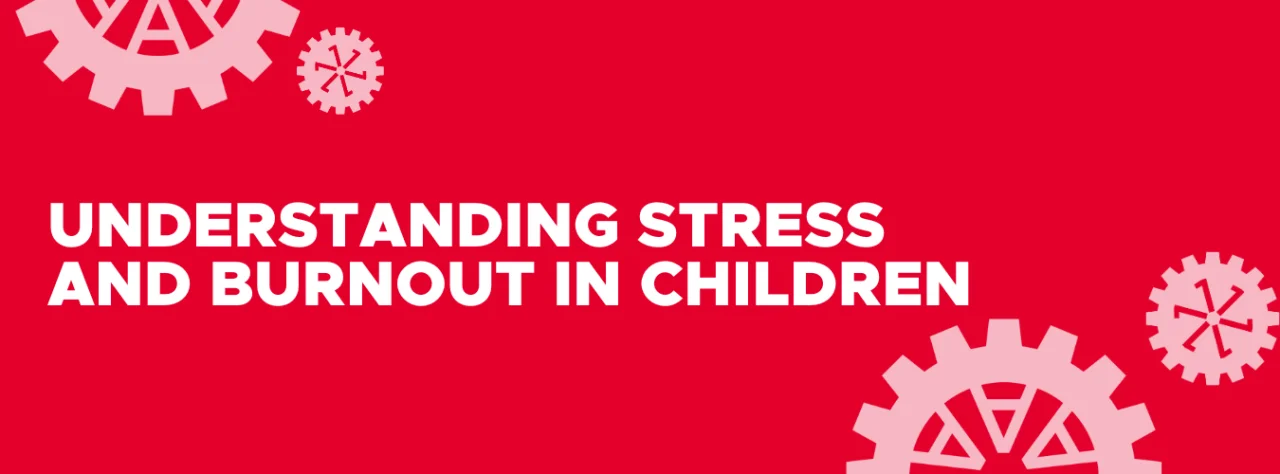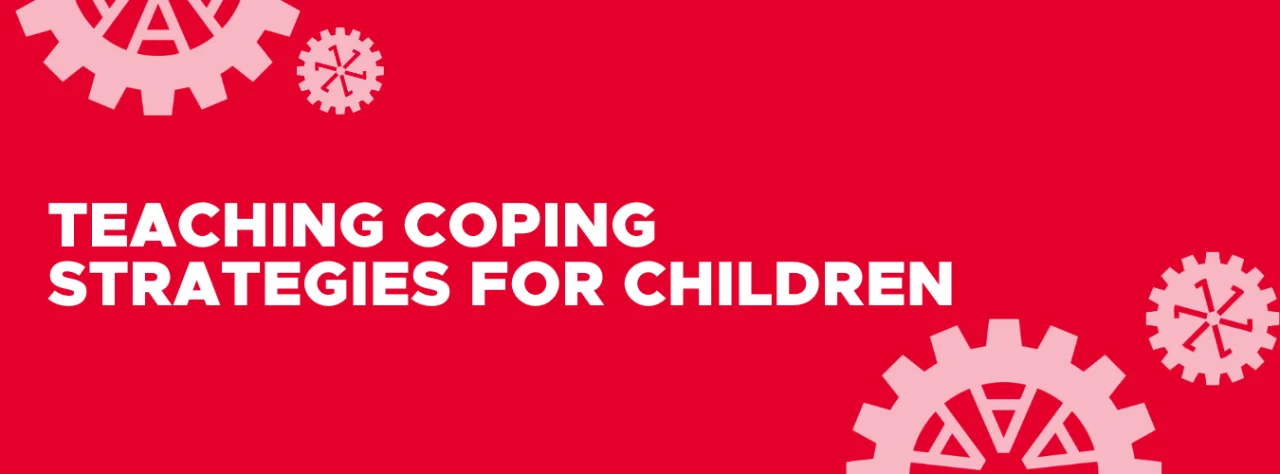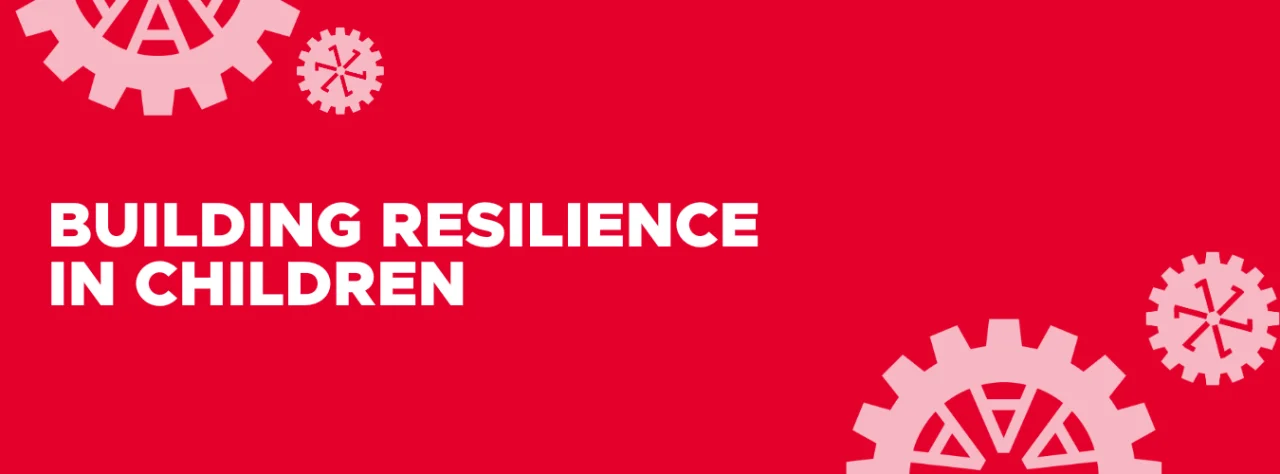24th May 2024
Empowering Your Child: A Comprehensive Guide to Preventing Stress & Burnout
In today's rapidly connected world, children face heightened susceptibility to stress and burnout. As guardians, it falls upon us to arm them with the necessary skills to traverse life's obstacles while safeguarding their mental and emotional well-being.
Within this blog, we will explore strategies aimed at helping your child evade stress and burnout, thereby ensuring their flourishing in all aspects of life.
Understanding Stress and Burnout in Children
Before delving into these strategies, it is imperative to grasp the essence of stress and burnout for children. Stress may arise from a multitude of sources, including academic pressures, social dynamics, or familial situations.
Unchecked, stress can escalate into burnout, characterised by emotional fatigue, cynicism, and diminished performance. By identifying early indicators, we can proactively intervene to thwart the onset of burnout.

Creating a Supportive Environment
The cornerstone of averting stress and burnout lies in nurturing a supportive environment within the home. Foster open dialogue with your child, cultivate a positive and nurturing ambience, and establish reasonable expectations that respect their unique strengths and limitations.
Through cultivating a secure environment where your child feels valued and understood, you empower them to confront life's hurdles with resilience and assurance.
Teaching Coping Strategies
In addition to fostering a supportive environment, it's crucial to arm your child with effective coping mechanisms to navigate stress as it arises. Introduce them to mindfulness and relaxation techniques like deep breathing exercises or progressive muscle relaxation.
Encourage physical activity, which not only serves as a stress reliever but also bolsters overall well-being. Moreover, help your child explore hobbies and interests that bring them joy and fulfilment, offering healthy avenues for stress relief. Teach them the importance of setting boundaries and expressing when they feel overwhelmed, empowering them to prioritise self-care and manage their time wisely.
Furthermore, instilling gratitude practices can serve as a potent tool for combating stress and fostering resilience. Encourage your child to maintain a gratitude journal, jotting down three things they're thankful for each day. By shifting their focus to the positives in their lives, your child can cultivate optimism and resilience, aiding them in navigating challenges with optimism and strength.

Promoting Healthy Habits
A balanced lifestyle is pivotal in averting stress and burnout. Ensure your child receives adequate sleep by establishing a consistent bedtime routine and crafting a conducive sleep environment. Involve them in meal planning and preparation to promote nutritious eating habits, emphasising the significance of nourishing their bodies with wholesome foods.
Restrict screen time to prevent digital saturation, a factor that can exacerbate stress and anxiety. Encourage outdoor play and physical activities to foster holistic well-being. Foster open conversations about mental health, destigmatising seeking support when necessary, be it from a trusted adult or a mental health professional.
Consider integrating mindfulness practices into your child's daily regimen to enhance emotional regulation and reduce stress. This may entail guided mindfulness exercises such as mindful breathing or body scans, aiding your child in cultivating present-moment awareness and resilience amidst life's challenges.
Building Resilience
Resilience, the capacity to rebound from adversity, is a vital skill to cultivate in your child. Foster problem-solving abilities by encouraging them to tackle challenges with a solution-focused approach. Cultivate a growth mindset that views mistakes as stepping stones for growth, nurturing your child's confidence to confront obstacles with resilience and perseverance.
Highlight the significance of self-care and self-compassion, urging your child to prioritise their well-being amidst life's pressures.

Balancing Academic and Extracurricular Activities
While academic achievement holds importance, it's imperative to strike a harmonious equilibrium between scholastic commitments and extracurricular pursuits. Aid your child in prioritising activities aligned with their interests and passions, ensuring they allocate time for both academic endeavours and recreational interests.
Promote transparent communication with teachers and coaches to manage expectations and evade overcommitment, empowering your child to pursue their interests without compromising their mental and emotional equilibrium.
Leading by Example
As parents, we are influential role models for our children. Showcase healthy stress management techniques by practising self-care and prioritising your well-being. Illustrate the significance of work-life balance by establishing boundaries and valuing family time and relaxation.
Exhibit empathy and support towards your child's emotions, validating their experiences and offering unwavering encouragement as they navigate life's highs and lows.

Parental Support and Communication
Parental support and fostering open communication are essential components in guiding children through stress and steering them away from burnout. As a parent, establishing an environment where your child feels safe expressing their thoughts, feelings, and worries without judgment is paramount.
Encourage regular check-ins with your child, actively listening to their experiences and validating their emotions. By nurturing a strong bond built on trust and empathy, you provide your child with the foundation needed to effectively cope with stress.
Furthermore, consider incorporating routines that encourage bonding and communication. Weekly family meetings, for instance, can offer a platform for everyone to share highlights from their week or discuss challenges they may be facing. Prioritising quality time together and fostering a sense of belonging within the family unit creates a support network that fortifies your child's emotional resilience.
Seeking Professional Help When Needed
Should you observe signs of excessive stress or burnout in your child, do not hesitate to seek professional assistance. Mental health professionals can offer invaluable support and tailored guidance, equipping your child with coping strategies and interventions to navigate stressors and build resilience. Remember, seeking help signifies strength, and by prioritising your child's mental well-being, you set them on a path toward long-term health.

Preventing stress and burnout in children requires a comprehensive approach, encompassing the creation of a supportive environment, teaching coping strategies, promoting healthy habits, fostering resilience, seeking professional help when necessary, and leading by example. By consistently and compassionately implementing these strategies, you empower your child to confront life's challenges with confidence, resilience, and well-being.
At NumberWorks’nWords, we are here to support your child and boost their results and confidence. We know that each child learns at their own pace, which is why our tutors tailor their coursework to meet your child’s needs so they can study in an environment where they feel their best. Our individualised learning is specially designed to engage each child’s interest and give them the confidence to tackle any problem.
To get started today book a free assessment or find a centre near you!

More news articles
18th February 2026

The Stress-Free Guide to Learning Times Tables
Read more3rd February 2026

How NumberWorks’nWords Helps Children Reset After the Holidays
Read more18th January 2026

How to Reset Routines After the Christmas Holidays
Read more5th December 2025

How to Prevent the Summer Learning Slide
Read more